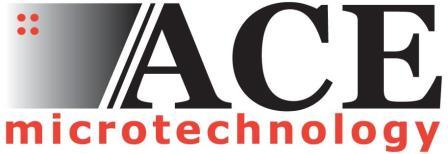
ACE Team is helping our client American Superba by paying tribute to Darin McClure and Stephanie Harrell’s family this year for the Holiday Season!
2011 has added some unforeseen stress for this client and ACE would like to assist in some small way to make their holiday season more joyous!
Background:
Darin McClure, President of American Superba of Dalton, Georgia, departed this life at age 45, September 26, 2011 in Barcelona, Spain of a heart attack while on a business trip. Darin was born April 24, 1966 in Dalton, Georgia, a son of the late Marvin Lee and Pearlene Southerland McClure. He is survived by his loving wife of twenty-two years, Lisa Jones McClure; son, Landon McClure; daughter, Ali McClure all of Chatsworth, GA.

And if that wasn’t enough one of their Key Employees Stephanie Harrell’s son Brock, age 8 was diagnosed with a rare disease *aplastic anemia (AA) and **paroxysmal nocturnal hemoglobinuria (PNH) in early September, 2011.
They are looking at many options for Brock but so far a bone marrow transplant match has not been found. You can get the backstory and keep up with Brock’s journey at www.caringbridge.org/visit/brockharrell
The ACE team is doing a fund raiser for the next six weeks in lieu of “Client Gift Baskets” to support the Harrell children during a very tough holiday season.
For every “Like” on Brock or Darins’ picture, ACE will contribute $1 towards gift certificates for the children of the Harrell family. We will up the donation once we hit 250 “Likes” to $2 per like. Please take a moment to keep these two families in your thoughts and prayers and click on the “Like” button every time you do.
As President of ACE, I want to thank all of you for your support throughout 2011 and wish all of you a prosperous, happy and healthy 2012!
Sincerely,
Susan Looby, President, ACE Microtechnology
Susan Looby, President, ACE Microtechnology
*Aplastic anemia is a rare, non-contagious and often life-threatening disorder that results from the unexplained failure of the bone marrow to produce red blood cells, white blood cells and platelets. A decrease in the production of blood cells means that patients are more susceptible to bleeding, fatigue and infections.
Incidence
Aplastic anemia affects two to six people per million worldwide. The disease is more prevalent in Asia than in the Western world. Most cases occur in older adults, but a significant number of children are affected.
**Paroxysmal nocturnal hemoglobinuria (PNH), an acquired hematologic disorder characterized by intravascular hemolysis, nocturnal hemoglobinuria, thrombotic events, serious infections, and bone marrow failure, is very rare in children. PNH is caused by a somatic mutation of the phosphatidylinositol glycan (GPI) complementation class A (PIGA) gene, followed by a survival advantage of the PNH clone, which results in a deficiency of GPI-anchored proteins on hematopoietic cells. Currently, immunophenotypic GPI-linked anchor protein analysis has replaced the acid Ham and sucrose lysis test, as it provides a reliable diagnostic tool for this disease. The presence of PNH clones should be considered in every child with an acquired bone marrow failure syndrome, for example (hypoplastic) myelodysplastic syndrome and aplastic anemia, and/or unexpected serious thrombosis. Treatment of PNH in children is dependent on the clinical presentation. In cases of severe bone marrow failure, stem cell transplantation should be seriously considered as a therapeutic option even if no matched sibling donor is available. This article reviews the reported cases of PNH in children using the recently published guidelines for classification, diagnostics, and treatment.
Incidence
Aplastic anemia affects two to six people per million worldwide. The disease is more prevalent in Asia than in the Western world. Most cases occur in older adults, but a significant number of children are affected.
**Paroxysmal nocturnal hemoglobinuria (PNH), an acquired hematologic disorder characterized by intravascular hemolysis, nocturnal hemoglobinuria, thrombotic events, serious infections, and bone marrow failure, is very rare in children. PNH is caused by a somatic mutation of the phosphatidylinositol glycan (GPI) complementation class A (PIGA) gene, followed by a survival advantage of the PNH clone, which results in a deficiency of GPI-anchored proteins on hematopoietic cells. Currently, immunophenotypic GPI-linked anchor protein analysis has replaced the acid Ham and sucrose lysis test, as it provides a reliable diagnostic tool for this disease. The presence of PNH clones should be considered in every child with an acquired bone marrow failure syndrome, for example (hypoplastic) myelodysplastic syndrome and aplastic anemia, and/or unexpected serious thrombosis. Treatment of PNH in children is dependent on the clinical presentation. In cases of severe bone marrow failure, stem cell transplantation should be seriously considered as a therapeutic option even if no matched sibling donor is available. This article reviews the reported cases of PNH in children using the recently published guidelines for classification, diagnostics, and treatment.
